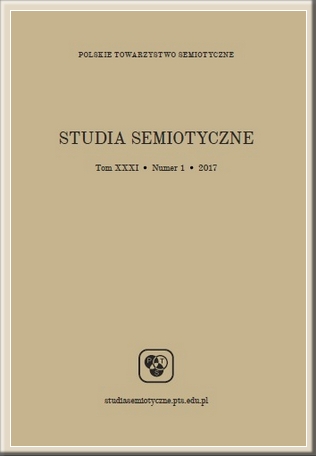Abstract
DOI: http://doi.org/10.26333/sts.xxxi1.04
The paper aims at providing an argument for a deflationary treatment of the notion of public language meaning. The argument is based on the notion of standards of correctness; I will try to show that as correctness assessments are context-involving, the notion of public language meaning cannot be treated as an explanatory one. An elaboration of the argument, using the notion of ground is provided. Finally, I will consider some limitations of the reasoning presented.
References
Burge, T. (1979), Individualism and the Mental, “Midwest Studies in Philosophy” 4, pp. 73–121.
Byrne, A. (1996), On Misinterpreting Kripke’s Wittgenstein, “Philosophy and Phenomenological Research” 56, pp. 339–343.
Coleman, J. (1995), Truth and Objectivity in Law, “Legal Theory” 1, pp. 33–68.
Davidson, D. (2005), Nice Derangement of Epitaphs, in: Truth, Language, and History, Oxford: Clarendon Press, pp. 89–108.
Edwards, D. (2013), Truth as a Substantive Property, “Australasian Journal of Philosophy” 91(2), pp. 279–294.
Fine, K. (2001), The Question of Realism, “Philosophers’ Imprint” 1(1), pp. 1–30
Glüer, K., Pagin, P. (1999), Rules of Meaning and Practical Reasoning, “Synthese” 117, pp. 207–227.
Gross, S., Tebbenm N., Williams, M. (eds.) (2015), Meaning without Representation, Oxford: Oxford UP.
Hattiangadi, A. (2006), Is Meaning Normative?, “Mind and Language” 21, pp. 220–240.
Horwich, P. (1995), Meaning, Use and Truth, “Mind” 104, pp. 355–68.
Horwich, P. (1998a), Truth, Oxford: Oxford UP.
Horwich, P. (1998b), Meaning, Oxford: Oxford UP
Kripke, S. (1982), Wittgenstein on Rules and Private Language, Cambridge, Mass: Harvard UP
Kripke, S. (1977), Speaker’s Reference and Semantic Reference, in: P.A. French, T.E. Uehling Jr, H.K. Wettstein (eds.), Studies in the Philosophy of Language, Minnesota: University of Minnesota Press, pp. 255–296.
Kusch, M. (2006), A Sceptical Guide to Meaning and Rules, Chesham: Acumen.
McDowell, J. (1984), Wittgenstein on Following a Rule, “Synthese” 58, pp. 326–363.
Price, H. (1998), What Should a Deflationist about Truth Say about Meaning?, “Philosophical Issues” 8, pp. 107–115.
Schiffer, S. (forthcoming), Deflationist Theories of Truth, Meaning, and Content, in: B. Hale, C. Wright, A. Miller (eds.), A Companion to the Philosophy of Language, 2nd ed., Oxford: Willey-Blackwell.
Strawson, P. (1950), Truth, “Proceedings of the Aristotelian Society” 24, pp. 129–156
Thomasson, A. (2013), Fictionalism versus Deflationism, “Mind” 122, pp. 1023–1051.
Whiting, D. (2007), The Normativity of Meaning Defended, “Analysis” 67, pp. 133– 140.
Wilson, G. (1998), Semantic Realism and Kripke’s Wittgenstein, “Philosophy and Phenomenological Research” 58, pp. 99–122.
Wittgenstein, L. (1953), Philosophical Investigations, Oxford: Blackwell.
Wright, C. (1992), Truth and Objectivity, Oxford: Oxford UP.


